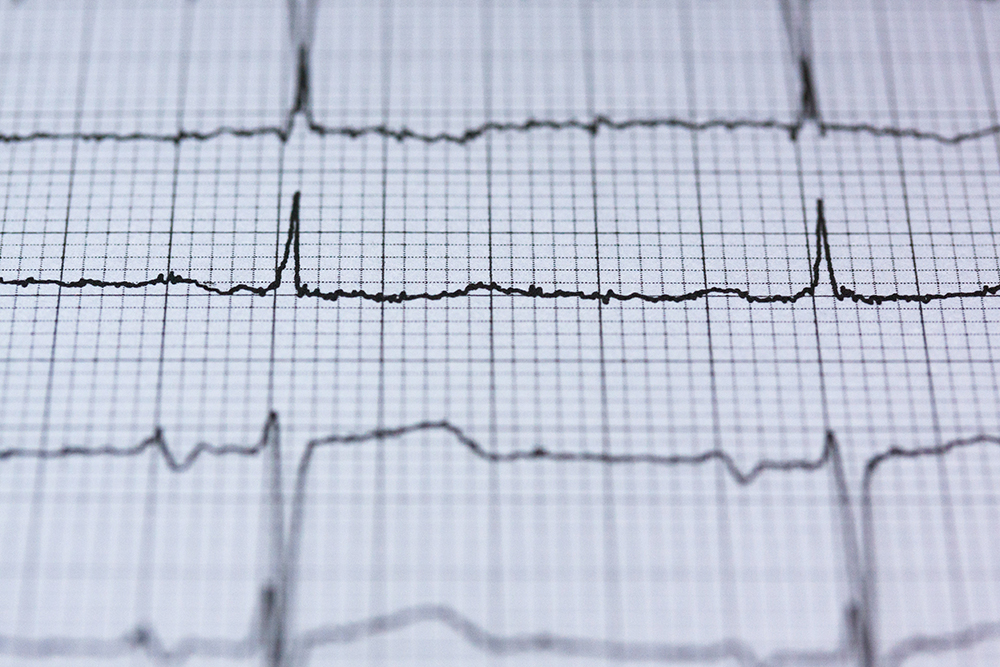Why heart failure research is vitally important
Contributed by Julie Penfold.

Around 920,000 people have a diagnosis of heart failure in the UK. Living with a diagnosis of heart failure can be incredibly challenging. It is a long-term condition where the heart has been damaged and does not pump blood through the body as well as it should. This can lead to a number of symptoms including breathlessness, extreme fatigue, fluid retention, chronic wheezing or cough, and confusion.
When you take part in a clinical trial, you are assisting in the essential research of new medications and treatments for devastating long-term conditions such as heart failure. If you are currently living with heart failure, your participation in clinical trials could help to further vital drug treatment development.
What researchers learn from your experiences of how a study drug affects your body is a crucial first step in developing new treatments for heart failure.
Your Heart And Your Hearing: How They Are Connected
Contributed by Ryan Peterson.

It may not be obvious to many, but did you know that the health of your heart is closely connected to your hearing? But why? How can they be so closely related? Well, it’s all to do with the blood flow, and studies have shown that good circulation plays a role in maintaining good hearing health.
Did you know that heart disease is the leading cause of death in both men and women, and it kills almost 610,000 people every year in the United States according to figures from the Centers for Disease Control (CDC)? People who suffer from cardiovascular disease often have a variety of medical issues which affect the structure and vessels of the heart, and the most common types include those which narrow or block vessels leading to chest pain, or a heart attack or stroke. Others include those which affect your heart’s muscles, valves or rhythm.
So, what about the ear, then? Well, if you have inadequate blood flow and trauma to the blood vessels of the inner ear, this can contribute to hearing loss.
According to Professor and Vice Chair of Otolaryngology and Communication Sciences David R. Friedland, M.D., Ph.D, one of the researchers from the Medical College of Wisconsin who has been studying the relationship between hearing health and cardiovascular health for many years: “The inner ear is so sensitive to blood flow that it is possible that abnormalities in the cardiovascular system could be noted here earlier than in other less sensitive parts of the body.”
There are delicate hair cells in the cochlea, which is the spiral cavity of the inner ear and contains the organ of Corti, which produces nerve impulses in response to sound vibrations. These nerve impulses play an essential role in translating noise which your ears collect. These then go into electrical impulses, and the brain interprets them as recognizable sound. So for this, your ears must rely on good circulation as poor circulation takes the oxygen from the hair cells, and as the hair cells do not regenerate, it results in permanent hearing loss.
If you experience sudden hearing loss, then this can be a sign of cardiovascular disease. If this happens, you should have both your hearing and heart both checked and as you get older you should have your hearing and heart regularly anyway, and if you have been diagnosed with a heart condition then you need to pay particular attention to your hearing health.
So, if you are noticing your hearing or your heart aren’t quite as sharp as they once were, then there is time to do something about it before the problem gets any worse.
When it comes to your hearing, you might not notice it at first yourself, but what you might notice is other people. Are people complaining that you have the television too loud or that you are asking people to repeat themselves more often than usual? Or perhaps you’re struggling to follow conversations because of background noise? Or if you notice ringing or hissing in your ears, then you could already have some degree of hearing loss. This can start at any age, although it is significantly higher in people who are 65 or older, but it is not a guaranteed consequence of ageing as some types of hearing loss can be prevented. For example, minimizing your exposure to loud noise and not listening to music through headphones with the volume all the way up are advisable ways to protect your ears and always make sure that you wear earplugs or protective earmuffs if you are exposed to very loud noise.
Loss of hearing can be embarrassing for some, and it can also affect your social life as well as it can feel very isolating. Do make sure that you have regular check-ups and go and see the doctor at the first sign of any issues and don’t be afraid to get any treatment as many people enjoy better living by wearing hearing aids. The final thing you must do to keep your hearing in good condition is to look after your heart and here are the many ways of how you can do that…
Continue readingHeart disease is the leading cause of death for women in the United States

Women tend to put the needs of others first. Taking care of oneself gets mistakenly equated with being selfish.
It can’t be emphasized enough that the self-care you give yourself today determines what life looks like 10, 20, or more years down the road. Will you be able to physically do what you want to do?
Let’s say you make through your 40’s with no heart health related issues. Cholesterol levels are good. Blood pressure is within normal. Then your 50’s roll around and next thing you know you’re on medication to either lower cholesterol, lower blood pressure, or both. Some more time goes by and you start experiencing angina, which is chest pain tied to reduced blood flow to the heart likely caused by your high cholesterol levels leading to narrowed arteries. More medication is added to the mix (which we all know comes with it’s own unpleasant side effects) and next thing you know all you want to do is sit on the couch and not move because it hurts too much or you just don’t have the energy. An all too common scenario and even more frustrating because it is largely preventable.
While heart disease is often considered a “man’s disease,” around the same number of women and men die each year of heart disease in the United States. Despite increases in awareness over the past decade, only 54% of women recognize that heart disease is their number 1 killer. One in every four women die of heart disease.
The older you get the higher your risk for heart disease and stroke.
Continue readingHeart Disease and Medicare: How Are You Covered in 2019?
Contributed by Danielle Kunkle.

Heart disease is a catch-all term for many different conditions that affect your heart. The most common, coronary heart disease (CHD) is caused by fatty deposits narrowing the arteries that supply the heart. Other types of heart disease are caused by abnormalities in the heart structures themselves, weakness in the heart muscles, or problems with the signals that maintain a normal heart rhythm.
Heart disease causes one in four deaths in the U.S.; it’s the leading cause of death for both men and women. Over 700,000 people have a heart attack every year, and heart disease contributes to nearly 800,000 strokes each year.
Health and lifestyle factors such as hypertension, obesity, diabetes, high cholesterol, smoking, heavy alcohol use, and a lack of physical exercise are all risk factors for developing heart disease. The Centers for Disease Control states that 47% of Americans have at least one risk factor for heart disease.
If you have heart disease, or risk factors for heart disease, and you are covered by Medicare, here’s what you need to know about your coverage in 2019.
Does Medicare cover heart disease screening?
Undiagnosed and untreated heart disease causes debilitating and life-threatening complications. The good news is that Medicare covers a number of tests and screening procedures to identify heart disease early so you can get the treatment you need.
Continue reading8 Facts *Every* Man Should Know About Heart Health
Contributed by Tommy Wyher.

Did you know your heart will pump the equivalent of 1 million bath-tubs of blood in its lifetime?
Interestingly, the majority of causes of heart disease are related to lifestyle factors, so the health of your heart rests squarely in your hands. As a high performing pump that works non-stop 24/7, your heart requires care and maintenance.
Looking after your heart means it will keep on pumping! With that in mind, here are some other health facts about your heart to take into consideration. Some of which we’re sure you may not even be aware of…
The warning signs of heart disease
Heart disease is your body’s worst enemy, often resulting in heart attacks or even strokes.
Continue readingYour Gut Microbiome May Influence Your Heart Health (and Everything Else) – Here’s How to Take Care of It
Contributed by Ryan Peterson.

If you’re anything like most people, you’ve likely got a lot of respect for the health of your heart. And rightly so. When your heart is functioning optimally, everything in your life is simply better. Your mood will be better, you will be better able to perform strenuous physical activity, without as much stress, you’ll be healthier across the board, and – perhaps most importantly – you can expect to live significantly longer.
When people think about guarding their cardiovascular health, they generally think about things like eating wholegrain cereal, and getting plenty of time in on the treadmill or exercise bike.
All of these things are great, but have you ever stopped to consider how your gut microbiome may influence your heart health – and for that matter, every other facet of your health, in general?
For a long time, gut health was considered to be something that only really had implications for your physical comfort. Things like irritable bowel disorder were obviously noted to be unpleasant, but not much was understood beyond that.
Recent findings, however, – as detailed in Tim Spector’s book “The Diet Myth” have blown the lid off previous assumptions, and have driven home just how important gut health is, and why a trip to a GI doctor might be a great idea.
So, here are some tips for taking care of your gut microbiome.
Continue reading


